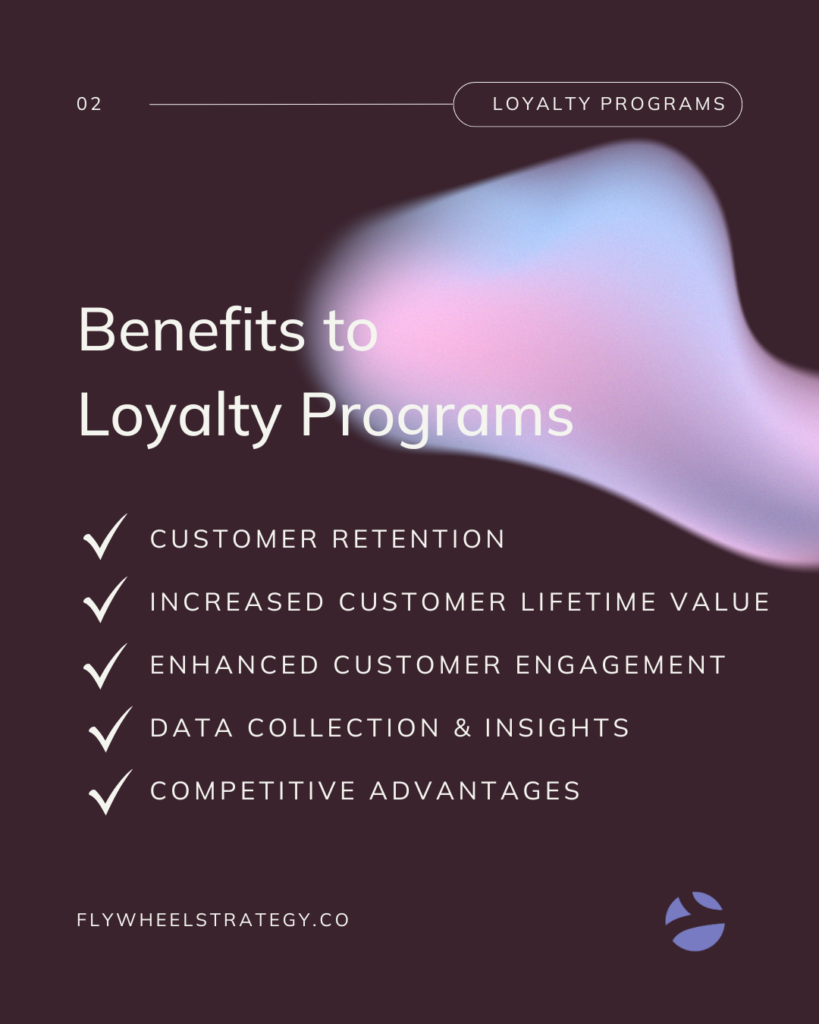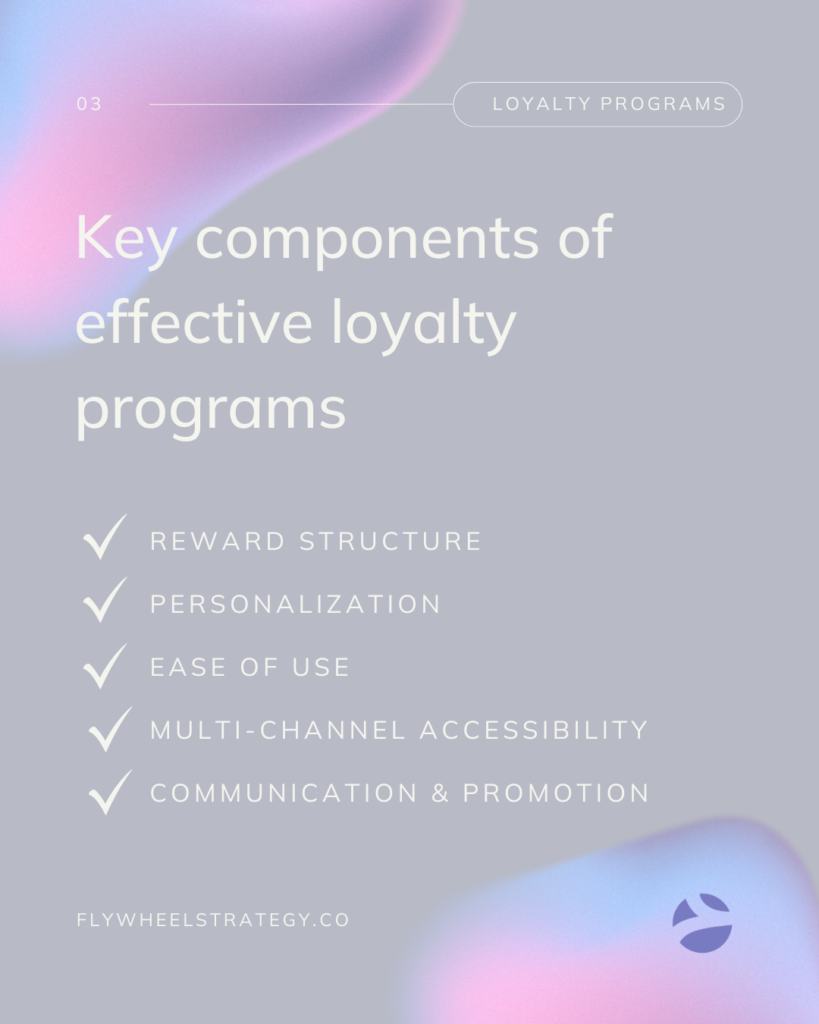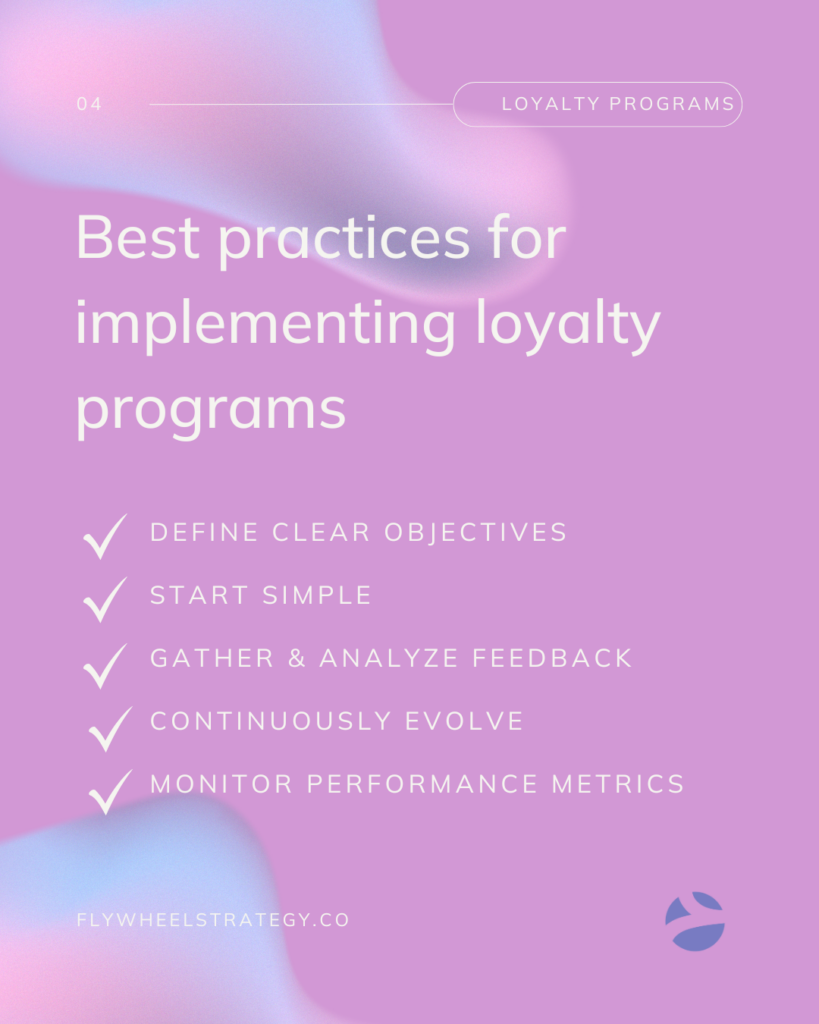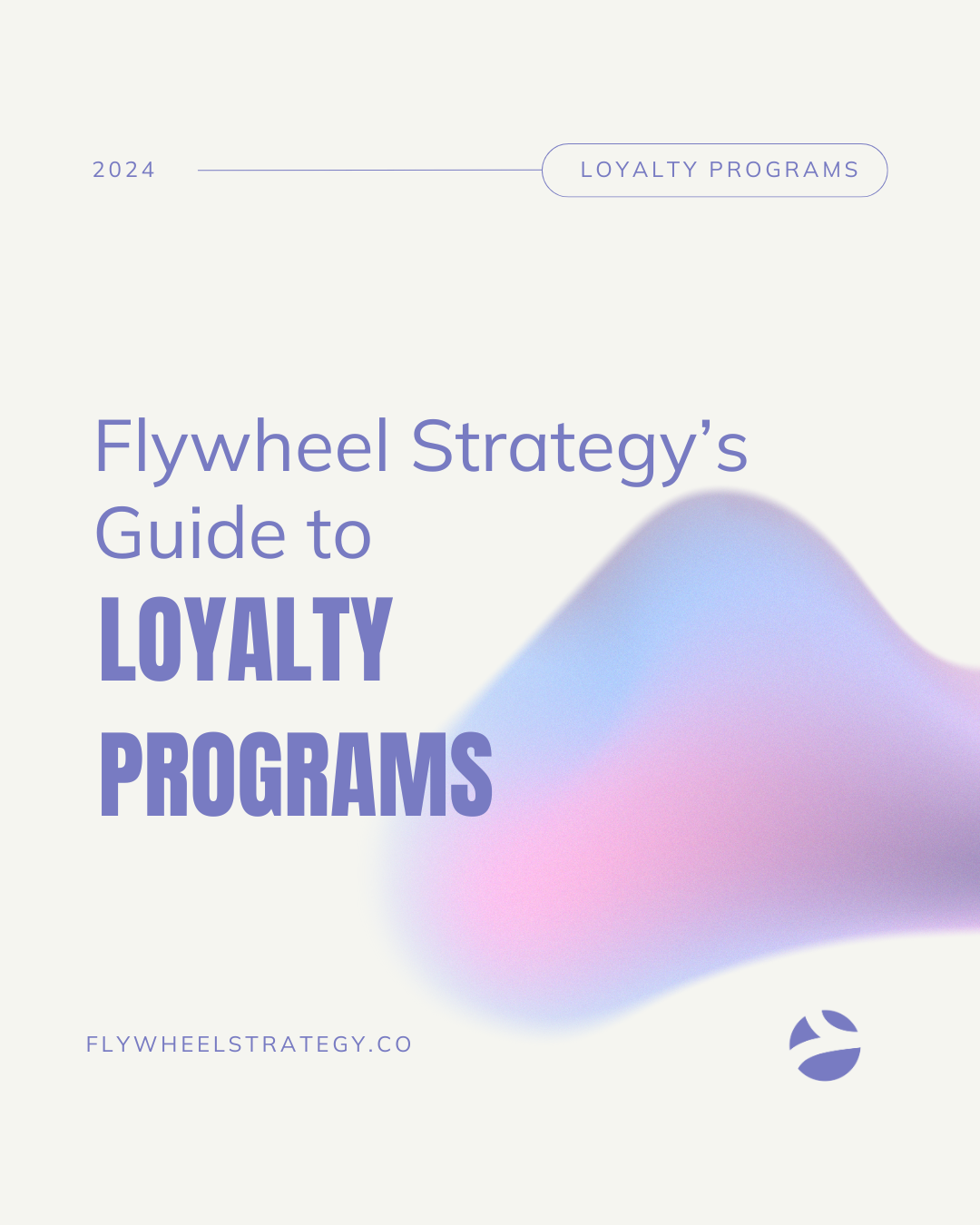WRITTEN BY: KATHRYN LANG
Each week Flywheel Strategy brands are talking and asking about Loyalty programs. Where to start? Who to use? How can I use it in my marketing? Are consumers still using loyalty programs and points?
We love a good Loyalty program, especially when we’re thinking about building your brand, creating a unique offering to your customers, and building a cult-following from your fans.
One of the most effective tools to create a lasting impression to your customers is a loyalty program. Flywheel Strategy loves working with, developing, and executing loyalty programs. Here’s how Flywheel Strategy thinks about Loyalty programs for our ecommerce and retail brands.
Benefits of a Loyalty Program
1. Customer Retention
Loyalty programs are a proven method to enhance customer retention. In the crowded online marketplace, where consumers have countless options at their fingertips, retaining customers can be more cost-effective than acquiring new ones. A well-structured loyalty program rewards repeat purchases, making customers more likely to return. Research indicates that increasing customer retention by just 5% can boost profits by 25% to 95%.
2. Increased Customer Lifetime Value (CLV)
Customer Lifetime Value is a critical metric for any e-commerce and retail business. Loyalty programs encourage repeat business, thereby increasing the total revenue a customer generates over their lifetime. By offering incentives, brands can boost average order values and frequency of purchases, directly impacting the CLV.
3. Enhanced Customer Engagement
Loyalty programs provide a platform for ongoing interaction with customers. Through personalized rewards, exclusive offers, and targeted marketing communications, brands can keep customers engaged. Engaged customers are more likely to become brand advocates, spreading positive word-of-mouth and bringing in new customers organically.
4. Data Collection and Insights
Loyalty programs are a valuable source of customer data. By tracking purchase behavior, preferences, and engagement patterns, brands can gain deep insights into their customer base. This data can be leveraged to personalize marketing efforts, improve product offerings, and refine overall business strategies.
5. Competitive Advantage
In an industry where differentiation is crucial, a well-designed loyalty program can set a brand apart from its competitors. Offering unique rewards and experiences through technologies like Hey Ethos can make a brand more attractive, fostering customer loyalty in an otherwise fickle market.

Key Components of Effective Loyalty Programs
1. Reward Structure
The foundation of any loyalty program is its reward structure. This can include points-based systems, tiered memberships, cashback, or exclusive discounts. The key is to ensure that rewards are attainable and desirable, motivating customers to participate actively.
2. Personalization
Personalization is crucial for modern loyalty programs. Tailoring rewards and communications based on customer behavior and preferences can significantly enhance the program’s effectiveness. Personalized experiences make customers feel valued and understood, strengthening their loyalty to the brand.
3. Ease of Use
A loyalty program should be user-friendly and easy to navigate. Complicated processes can deter customers from participating. Streamlining enrollment, reward redemption, and communication ensures a seamless experience that encourages ongoing engagement.
4. Multi-Channel Accessibility
In today’s omnichannel retail environment, loyalty programs must be accessible across all touch points, including online stores, mobile apps, and physical locations (if applicable). Consistency in the loyalty experience across channels ensures that customers can easily earn and redeem rewards, regardless of how they interact with the brand. Platforms such as Yotpo bring email, SMS, reviews, subscriptions and loyalty into a centralized home to maximize personalization while minimizing complexity for your team to manage.

Best Practices for Implementing Loyalty Programs
1. Define Clear Objectives
Before launching a loyalty program, it is essential to define clear objectives. Whether the goal is to increase repeat purchases, gather customer data, or boost customer lifetime value, having well-defined targets will guide the program’s design and implementation.
2. Start Simple
For brands new to loyalty programs, starting with a simple, easy-to-manage system can be beneficial. As the program gains traction and the brand gathers more insights, it can be gradually expanded and refined.
3. Gather and Analyze Feedback
Customer feedback is invaluable in assessing the effectiveness of a loyalty program. Regularly soliciting feedback and analyzing it can help identify areas for improvement and ensure that the program continues to meet customer needs and expectations.
4. Continuously Evolve
The retail landscape and consumer preferences are continually evolving. A successful loyalty program should be flexible and adaptable, incorporating new trends, technologies, and customer insights to remain relevant and effective.
5. Monitor Performance Metrics
Tracking key performance metrics, such as enrollment rates, active participation, redemption rates, and overall impact on sales and customer retention, is crucial. These metrics provide a quantitative basis for assessing the program’s success and making data-driven adjustments.

Conclusion
Loyalty programs are a powerful tool for brands aiming to foster customer retention, enhance engagement, and drive long-term profitability. By offering valuable rewards, personalizing experiences, and maintaining seamless multi-channel accessibility, brands can create compelling loyalty programs that differentiate them in a competitive market. With clear objectives, ongoing feedback, and a commitment to evolution, brands can harness the full potential of loyalty programs to build lasting customer relationships and achieve sustained growth.

igigig
I like the website
July 01 2025 at 22:30 pm I like the website
We are good about straye
I would appreciate it if you could contact me soon.
Kindly reach out to me when you have time.